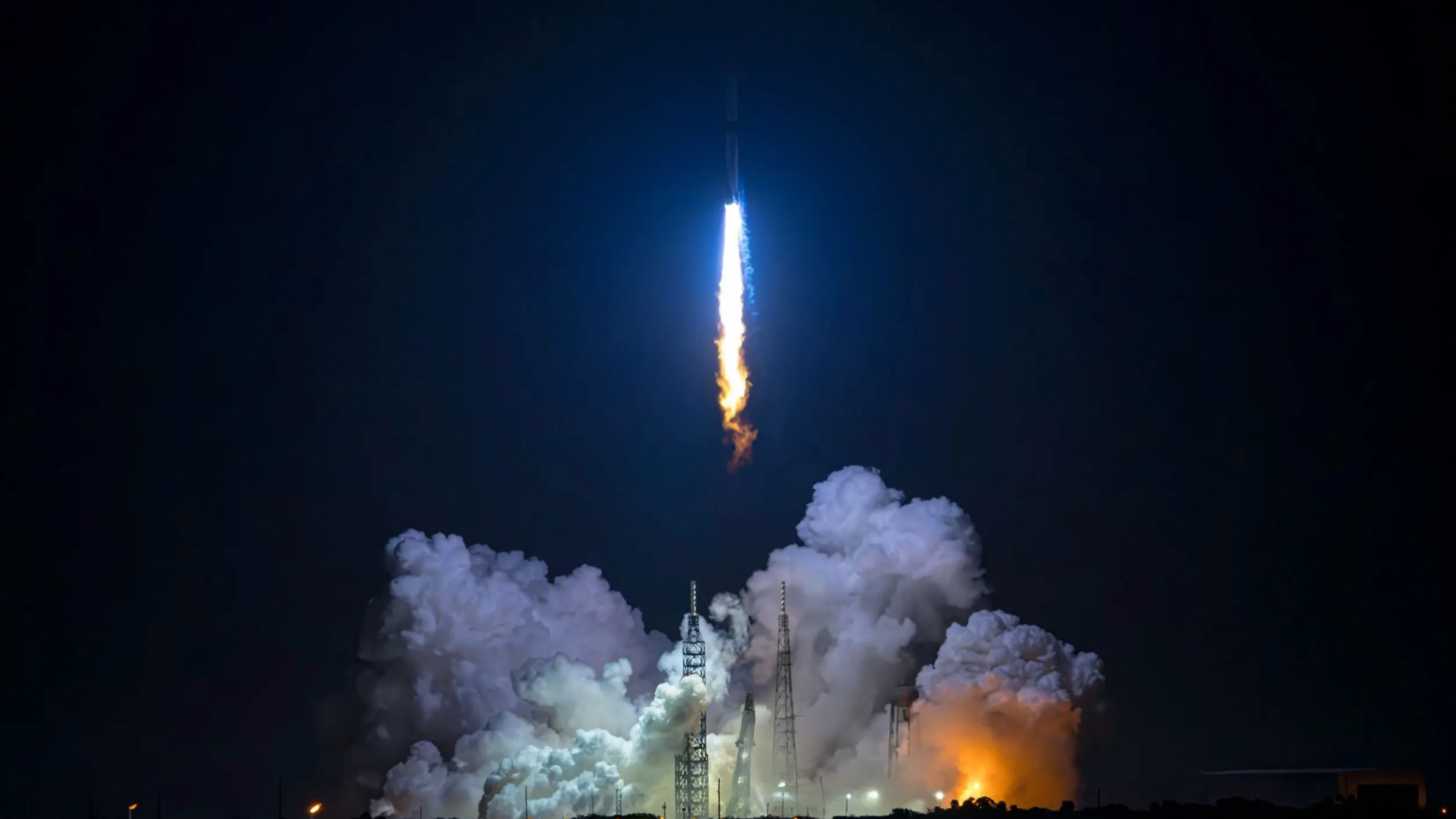A NASA Mars mission’s long and winding road to the launch pad is nearing its end.
The twin ESCAPADE (Escape and Plasma Acceleration and Dynamics Explorers) Mars probes had been scheduled to launch last October, on the first-ever flight of Blue Origin’s huge, partially reusable New Glenn rocket.
But NASA took the two spacecraft off that flight in September, citing the possibility of a cost-increasing launch delay. That delay did in fact come to pass; New Glenn ended up debuting on Jan. 15, successfully carrying a test version of Blue Origin’s Blue Ring spacecraft platform to Earth orbit. The company aimed to land New Glenn’s first stage on a ship at sea as well but failed in the attempt.
The ESCAPADE mission, meanwhile, continued in its state of limbo, without a publicly announced launch date.
But that has now been cleared up. On Thursday (July 17), Blue Origin announced that ESCAPADE will launch the second-ever flight of New Glenn, which is targeted for no earlier than Aug. 15 from Cape Canaveral Space Force Station in Florida.
That’s later than the company had originally planned; Blue Origin had been eyeing late spring for the flight, known as NG-2, but pushed it back last month.
“This will be an exciting mission for New Glenn and Mars exploration. ESCAPADE is not only New Glenn’s first interplanetary mission, it’s also the first multi-spacecraft orbital science mission to study the Martian magnetosphere. And, we hope to land and recover our booster for the first time. Mars, here we come. Thank you to @NASA for riding with us to space,” Blue Origin CEO Dave Limp said via X on Thursday.
ESCAPADE won’t be the only payload flying on NG-2; the 320-foot-tall (98 meters) New Glenn will also carry a technology demonstration for satellite-communications company Viasat, according to Blue Origin.
The two ESCAPADE probes were built by California-based company Rocket Lab. They’re known as Blue and Gold, the colors of the University of California, Berkeley, whose Space Sciences Laboratory will manage the $80 million mission for NASA.
That mission “will analyze how Mars’ magnetic field guides particle flows around the planet, how energy and momentum are transported from the solar wind through the magnetosphere, and what processes control the flow of energy and matter into and out of the Martian atmosphere,” NASA wrote in a description of ESCAPADE.
“The observations will reveal the planet’s real-time response to space weather and how the Martian magnetosphere changes over time,” they added.
